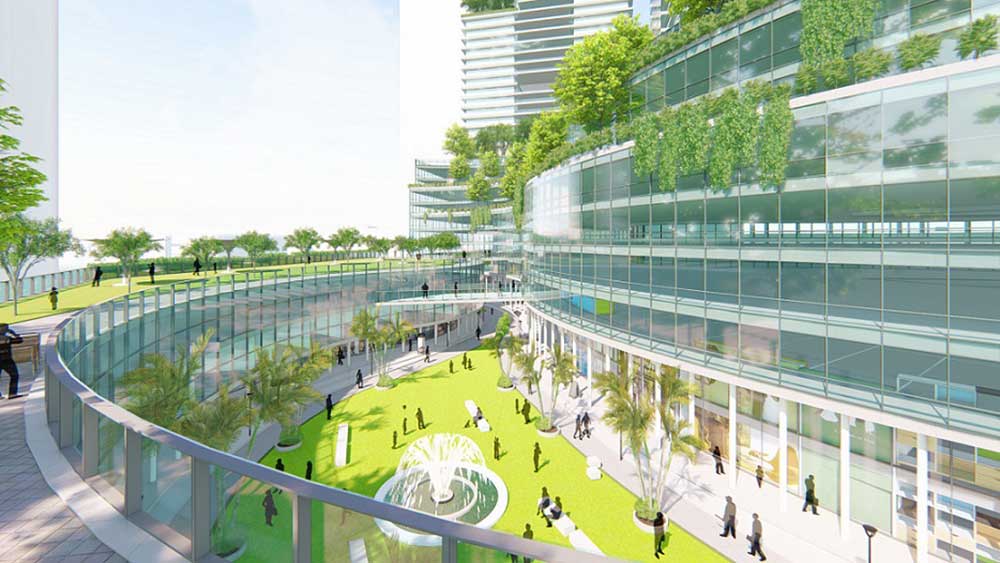Empowering Residents: Architect-Led Project Management as a tool for Quality Redevelopment

Urban areas, generally characterised by their dense population and, in many cases, ageing infrastructure, face major housing challenges. Quality housing is a fundamental component of life. The living spaces we inhabit impact not just our physical well-being but also our living experience in a city. We constantly need to innovate our modern housing solutions to solve these challenges. Dense and overpopulated cities like Mumbai exemplify this challenge, with over 16,000 cessed and dilapidated buildings, some nearing a century in age. In densely populated cities, where land is always scarce and land values are high, residential redevelopment serves as an important tool to improve living and housing conditions for people. As urban populations grow, the demand for modern, sustainable housing intensifies, making redeveloping housing societies an essential solution. There are multiple ways in which redevelopment can be done-
In this traditional model, housing societies partner with developers who undertake the construction and, in return, sell additional units to recover costs. While this model can be lucrative for developers, it often leads to compromised design quality, project delays, and potential financial risks for residents.
Of late, many developers/construction managers are also seen joining hands with housing society members as development managers, lending their brand name and their project execution capabilities to ensure successful redevelopment. In such cases, developers get easy access to bank funding at reasonable rates as the society remains the promoter of the redevelopment project.
This approach allows societies to manage the entire redevelopment process, from design to construction and marketing. By removing developers from the process, societies can benefit from better construction quality, increased living space, and financial transparency. However, this model requires meticulous planning, funding, and management, where an expert Project Management Consultant (PMC) becomes indispensable.
The selection of a suitable redevelopment model is a major challenge for any society. Although the self-redevelopment model generally seems more profitable, it requires a lot of effort and transparency from the managing and redevelopment committee members. Self-redevelopment also requires meticulous planning, funding expertise, and robust project management, which can be a significant hurdle for many societies.
*You can read more about the self-redevelopment model here.
An architect-led Project Management Consultancy (PMC) benefits self-redevelopment projects, ensuring an efficient blend of design and meticulous project management. With an architect-led Project Management Consultant (PMC) on board, the project strongly emphasises architectural integrity, ensuring that the final design meets user aspirations and adheres to functional and structural requirements. With architects at the helm, the project benefits from innovative design solutions that optimise space and enhance the living environment. This holistic method ultimately results in high-quality, sustainable developments tailored to the community's unique needs and aspirations.
IMK Architects' design philosophy is rooted in creating spaces where people thrive, supported by a holistic approach that prioritises stakeholder engagement and meticulous planning. We strive to transform urban living by empowering communities to create sustainable, high-quality living spaces through innovative and inclusive redevelopment solutions. Our proven project management consultancy (PMC) process takes a holistic approach and addresses these challenges head-on using the SCRUM process. By leveraging our expertise, innovative methods, and commitment to excellence, we help societies navigate the complexities of redevelopment, ensuring that every project is a testament to quality, sustainability, and community empowerment. Here are some critical aspects of our approach:
Similarly, in homes, offices and parks, reducing the amount of paving by integrating grass pavers helps lower the UHI effect while also allowing for water percolation into the soil.
Client Workshops: We listen to residents' needs and aspirations through intensive workshops, ensuring the final design reflects the collective vision.
Prioritised Design Requirements: Using the 80/20 rule, we prioritise critical design aspects to address the most essential needs effectively.
Dedicated Team: A team of experienced architects handles all design and planning activities.
Financial Expertise: We assist societies in securing funding through various channels and meticulously manage costs to prevent budget overruns.
Efficient Work Cycles: The project is divided into manageable sprints with specific goals and deliverables, allowing for regular assessment and adjustments.
Regular Client Feedback: Feedback sessions ensure concerns are addressed promptly, keeping the project aligned with stakeholder expectations.
On-Time Delivery: Rigorous project monitoring and proactive problem-solving facilitate timely completion, minimising disruptions.
A holistic approach to redevelopment goes beyond the immediate concerns of a single building. It acknowledges the project's impact on the larger urban fabric. During this transition phase, the city has a great opportunity to rejuvenate the infrastructure and prioritise community well-being. Redeveloping housing societies is not an option but a necessity to ensure the city remains liveable and sustainable. Empowering residents throughout the process is crucial. With open communication and collaborative decision-making, housing society redevelopment can catalyse positive change, empowering communities to reimagine their place with the city.


